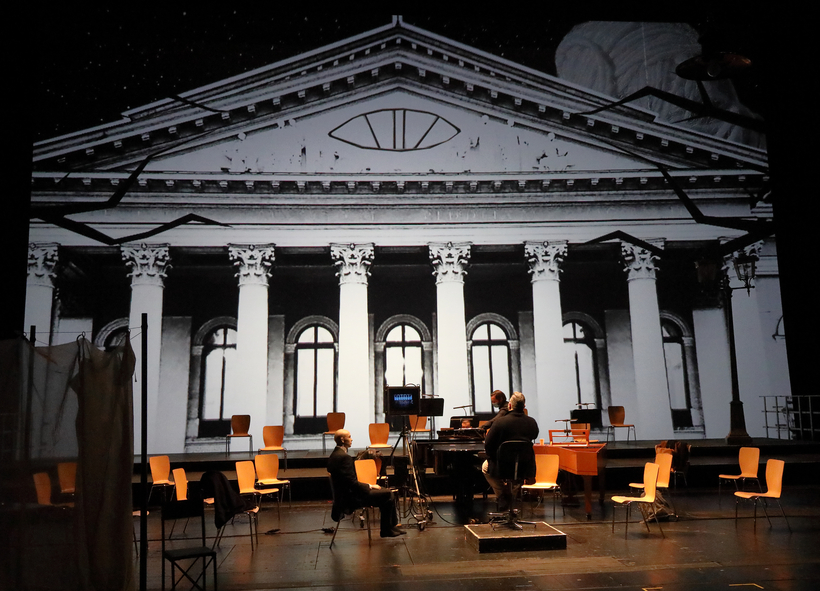Great institutions do well to honor their history. The Bavarian State Opera, in Munich, follows that rule with a new production of Aribert Reimann’s caustic Lear, written for the legendary German baritone Dietrich Fischer-Dieskau, who introduced it on this stage in 1978. Adapted from Shakespeare’s tragedy, the libretto trades high-flown Renaissance eloquence for Brechtian brass tacks, further sharpened by the wicked expressionism of the music. As the tyrannical monarch brought low by two wicked daughters, Fischer-Dieskau threw down a gauntlet that other ambitious singing actors couldn’t wait to take up.
His distinguished American colleague Thomas Stewart soon got his chance in San Francisco. Productions in London and Paris followed. They were not the last, but in recent seasons, Reimann’s Lear has caught a brisk second wind. A Salzburg premiere in 2014 won Gerald Finley, of Canada, a personal triumph; a second Paris production in 2016 did the same for Bo Skovhus, of Denmark.

In Munich’s Lear, Christian Gerharer—a top contender among today’s many rivals for Fischer-Dieskau’s mantle—takes his shot. Jukka-Pekka Saraste conducts. Christoph Marthaler, who directs, stands tall among today’s ubiquitous deconstructionists. The premiere on Sunday evening will reveal what he has up his sleeve.
Lear will be available for streaming on the Bavarian State Opera Web site through July 1
Matthew Gurewitsch writes about opera and classical music for AIR MAIL. He lives in Hawaii

